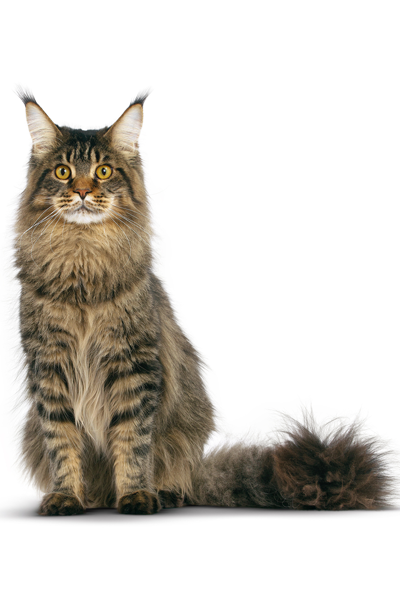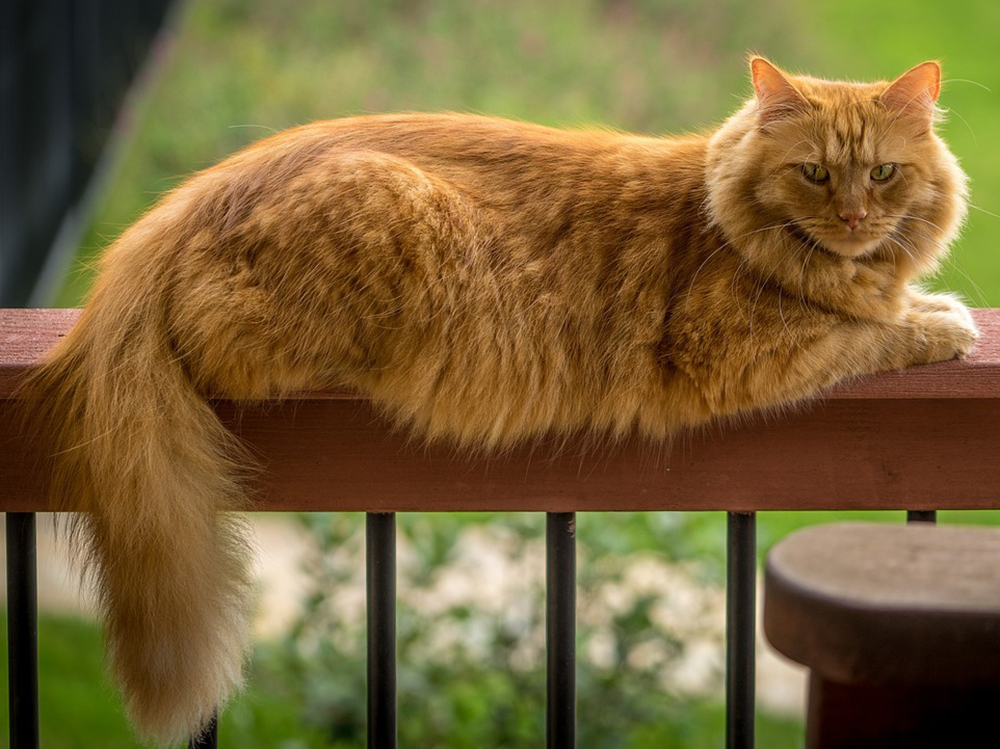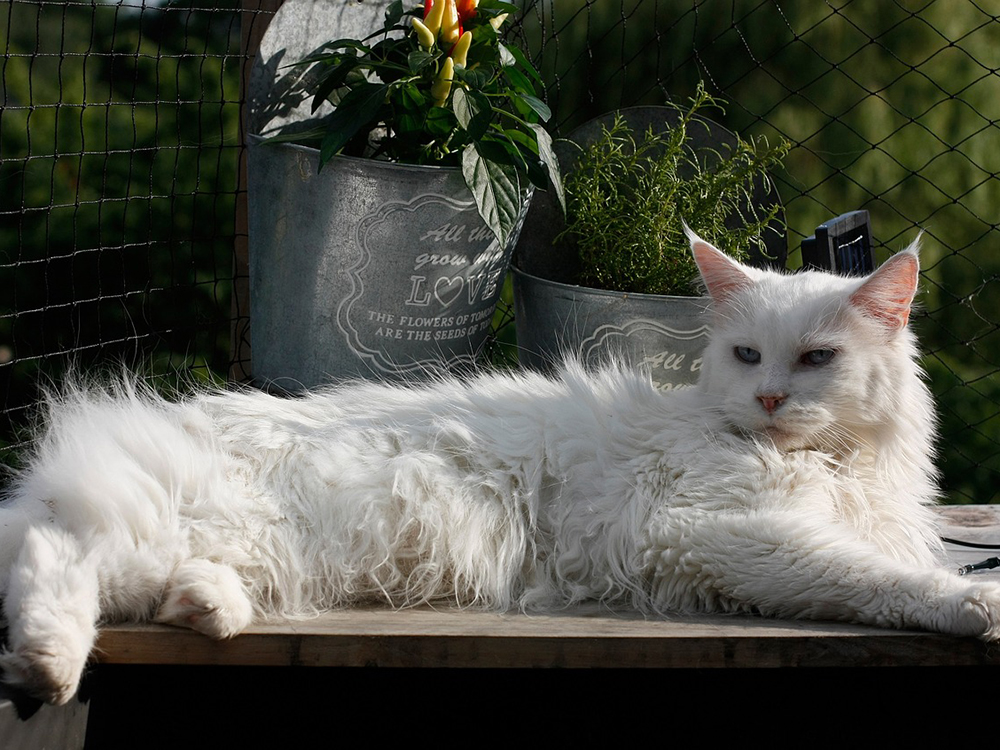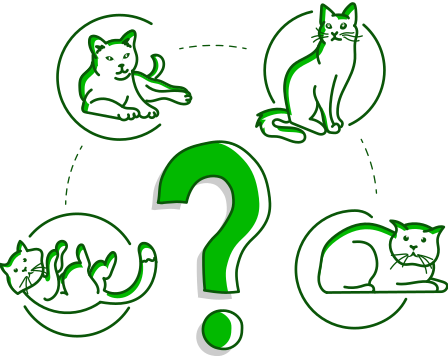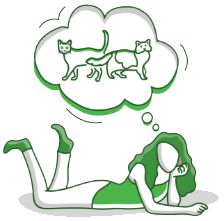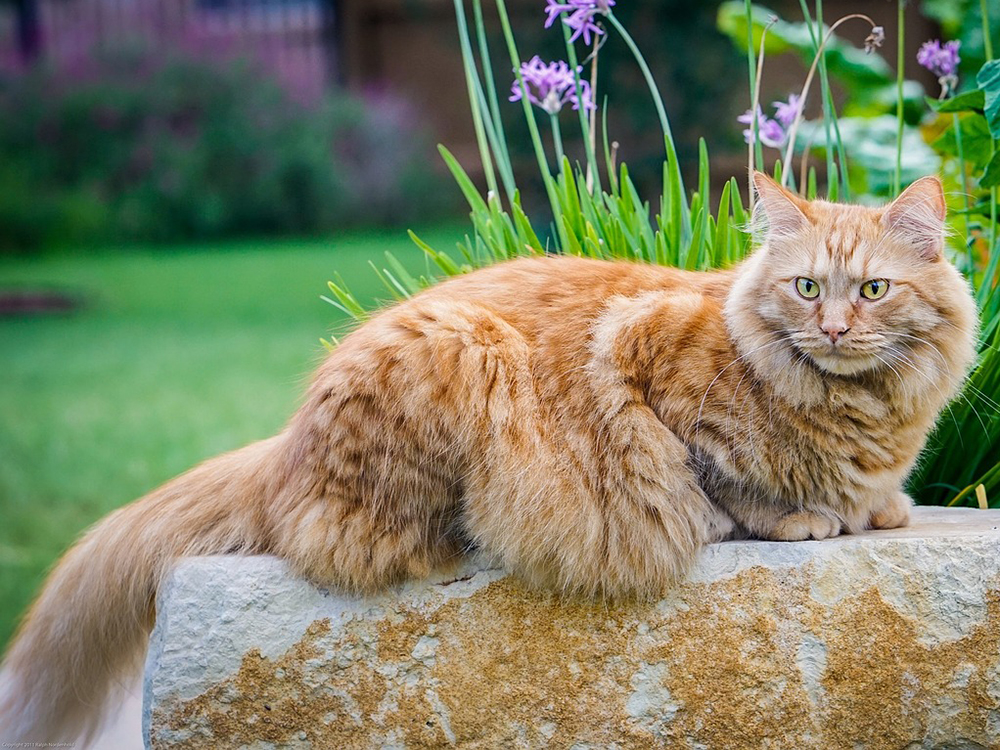
Maine Coon Breed Pictures
Vital Breed Stats
| Weight: | 4 - 9 kg M | 4 - 9 kg F |
| Life Expectancy: | 12 - 15 years |
Breed Characteristics
| Size: |  |
| Grooming: |  |
| Trainability: |  |
| Good with Children: |  |
| Good with other pets: |  |
| Affectionate: |  |
| Active Level: |  |
Give a thumbs up if you love the Maine Coon

0
More About the Breed
History
The Maine Coon got its name from its place of origin and one English seafarer, Captain Charles Coon. Although many myths have been told explaining its arrival on American shores, the most recognized hypothesis is the one that traces its origins from the crossbreeding of foreign long-haired and short-haired local cats. The long-haired imports were suspected to be those brought over by English seafarers, such as Captain Coon, or by Norsemen. Genetic testing has since revealed that the Main Coon is descended from the Norwegian Forest Cat and an unknown domestic breed that is already extinct.
Main Coons were originally raised as farm cats due to their superior ‘ratting’ and hunting skills. The first official reference to this cat breed was made in 1861. Later, in 1895, a female Main Coon was awarded Best Cat at a show. It later became one of the early registrants in the Cat Fanciers Association’s records. However, Main Coons were overshadowed by the Persians and Siamese imports during the turn of the century. The breed nearly became extinct in the 1950s as feline hobbyists ceased breeding it. Maine Coons experienced resurgence in the 1960s with the support of a newly formed association dedicated to the breed. Today, it is considered the official cat of the state of Maine.
Appearance and Grooming
With a body weight ranging from 9-18 pounds, a height that can reach 41 centimetres, and a length of up to 120 centimetres, the Maine Coon is a big, rugged-looking cat. It is the largest among the domestic cats, with a robust stature and a rectangular, muscular body. However, it takes 3-5 years from birth before the Maine Coon reaches its full proportions. It has tall, pointy ears and a wedge-shaped head that is a bit longer than wider. An M-shaped marking in the middle of its forehead is one of its distinguishing features.
The Maine Coon’s eyes do not necessarily match its fur’s shade; it could be copper, gold, or green. The white varieties tend to have mismatched eyes.
The fur of this breed is its most distinctive attribute, aside from its massive size. Shaggy, smooth, and glossy, the Maine Coon’s glorious coat consists of three layers and may come in various patterns and colours (from brown to cream). Under its two uneven layers of fur is a silky undercoat, all of which are augmented by the bushiness of its long tail. When it feels cold, the Main Coon can wrap its tail around itself for extra insulation.
The Maine Coon’s tufted paws are large as they act as its ‘snowshoes’ during the winter season. Although it is no longer bred to have six toes, some non-purebreds have extra toes.
Being a long or medium-haired cat, this cat needs regular grooming (twice weekly brushing). As it is likely to shed more in the Spring and Autumn, more brushing is needed during those seasons.
Temperament and Intelligence
The Main Coon may be massive but it is gentle and good with children. It can also live with dogs who are feline-friendly. Intelligent and affectionate, it likes human company and may even follow people around, although it isn’t hungry for attention. It just likes to know what’s going on in the home.
This high energy cat breed is an excellent mouser, and if it runs out of rodents to hunt, it’s happy enough to practice its chasing skills on toys. It also can learn new tricks and entertain itself with puzzles that stimulate his mental abilities.
The Maine Coon’s ways are very kittenish even beyond its prime adult years. While the males are the sillier ones, the females are typically more dignified. When it makes a sound, the Maine Coon produces the kind that resembles sweet chirping, although it can yowl loudly at meal time.
Nutrition and Feeding
As with other cat breeds, the Maine Coon benefits from a regular feeding schedule. It needs a balanced diet that fulfils its nutritional requirements: protein, fats, vitamins and minerals (especially niacin and vitamin A), carbohydrates, and amino acids (arginine and taurine).
Considering Maine Coons mature more slowly than other cat breeds, they may need to feed on kitten food until they are 9 months old. See to it that high quality food is provided and that introduction of new food should be done very gradually to avoid tummy upsets.
Health and Exercise
Due to its size and tendency to snuggle up for naps during the day, the Maine Coon should have regular exercise to prevent it from becoming overweight. It should also be kept indoors.
Although generally a healthy and sturdy breed, capable of withstanding very cold climates, this cat has genetic health issues that need to be noted by owners:
- Polycystic kidney disease
- Feline hypertrophic cardiomyopathy (HCM)
- Spinal muscular atrophy, which impacts the trunk and limb’s muscles
- Hip dysplasia
Cost of Ownership
If you wish to care for a Maine Coon cat, you will need to pay about £300-500 for a pedigreed kitten. Insuring this kind of feline may cost £15 to £29 each month. For the food costs, each month’s expense may reach £15-£20. With the veterinary care costs, Maine Coon owners will need to spend about £600 for vaccinations, boosters, and annual checks each year.
The estimated costs for keeping a Maine Coon is about £30-£50 per month. This amount may vary depending on the insurance coverage acquired for the pet. For its lifetime (9-15 years), costs can range from £3,240 to £9,000, not including the initial cost of buying a Maine Coon.
Is a Maine Coon Right for You?
- The Maine Coon is a massive feline that takes longer to mature. As such, you will be caring for a Maine Coon kitten for 4-5 years.
- Although the Maine Coon has a long, thick coat, it is easy to groom.
- As this breed has a lot of fur, expect to find fur and large hairballs around the home.
- The friendly and affectionate Maine Coon makes a good family cat and is suitable for first time cat owners.
- This cat breed is not needy but it is not suited to being left alone a lot either. It needs a companion–human, cat-friendly canine, or another feline.
- The Maine Coon is a big cat, the size of which may take time to get accustomed to for pet owners not used to such a breed.
